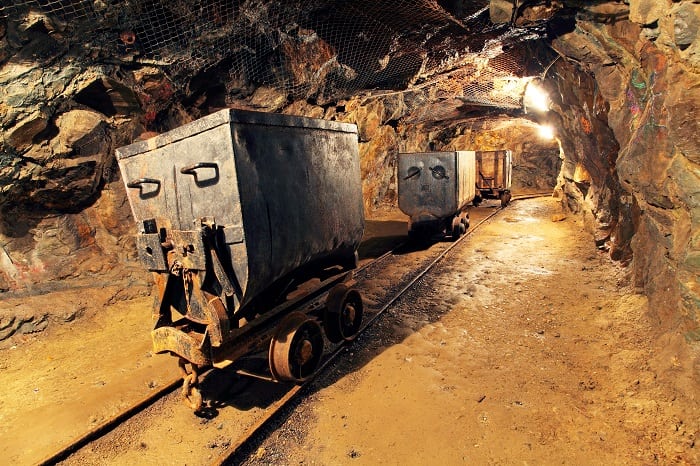Shares in the FTSE 100 miner rose gently as UK markets tentatively regained some of the ground lost in Tuesday’s sell-off in which the FTSE 100 saw its biggest slump since the Brexit vote. The more domestically-focused FTSE 250 saw sharper gains on the day, climbing 1.2% back up to 19,489.
Rio Tinto’s shares opened 3% higher on Wednesday before settling back down to the previous closing price of 3845p per share.
The share price reaction was decidedly muted, considering the company sweetened the deal for shareholders with a record full year dividend of $5.2bn (£3.75bn) and an additional $1bn share buyback to be completed by the end of 2018.
The $5.2bn full-year dividend amounts to 290 US cents per share and includes a final dividend of $3.2bn or 180 US cents per share. This brings the total cash returns the firm has given to shareholders during 2017 to $9.7bn.
Rio Tinto also delivered underlying earnings of $8.6bn for the year and reduced its net debt to $3.8bn.
The FTSE 100 miner’s chief executive, Jean-Sébastien Jacques, hailed the “strong set of results,” noting that operating cash flow of $13.9bn “is a result of resilient prices during the year coupled with a robust operational performance and a focus on mine to market productivity”.
Analysts were similarly positive about Rio Tinto’s final results.
“These are great results from Rio and underpin confidence in the significant dividend,” said Lee Wild, head of equity strategy at Interactive Investor.
Justin Cooper, CEO of Link Market Services, noted that “the sun is shining on the mining sector” as it looks cash generative, with Rio Tinto’s own record dividend payout and “chunky sharebuyback” reflecting “dramatically higher profitability on the back of cost cutting and higher commodity prices”.
“But it also reflects a new policy that links dividends much more closely to profits than in the past,” he added. “That inevitably means shareholders will have to get used to more volatile income from Rio Tinto and other miners, but the sun is shining on the mining sector at present, so investors should make hay. If the other mining companies follow suit, we can look forward to upgrading our forecast for UK dividends in what was otherwise shaping up to be a bit of a dull 2018 for payouts.”







